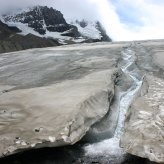NSU Newsroom
SharkBytes
Horizons
This version of NSU News has been archived as of February 28, 2019. To search through archived articles, visit nova.edu/search. To access the new version of NSU News, visit news.nova.edu.
This version of SharkBytes has been archived as of February 28, 2019. To search through archived articles, visit nova.edu/search. To access the new version of SharkBytes, visit sharkbytes.nova.edu.
Other NSU News Sources
News Releases Archive
Contact
Division of Public Relations and Marketing Communications
Nova Southeastern University
3301 College Avenue
Fort Lauderdale, Florida 33314-7796
SharkBytes Archives
SharkBytes Categories
- Academics
- Alvin Sherman Library
- Athletics
- Campaign Corner
- Community News
- Featured Center Stories
- News and Upcoming Events
- NSU Achievements
- NSU Alumni Spotlight
- NSU Art Museum Fort Lauderdale
- NSU Camps
- NSU Health Care Centers
- NSU Research Spotlight
- Nutrition Tips
- Looking Ahead
- Pride Bites
- Recreation and Wellness
- Regional Campuses
- Staying Green
- Student Affairs
- University School
Contact
Division of Public Relations and Marketing Communications
Nova Southeastern University
3301 College Avenue
Fort Lauderdale, Florida 33314-7796
Let’s Celebrate Earth Day all Month Long – Climate Change is Already Affecting All Continents
 According to a new a report by the Intergovernmental Panel on Climate Change (IPCC), climate change is already affected people throughout the world. “In recent decades, changes in climate have caused impacts on natural and human systems on all continents and across the oceans,” says the IPCC report. We have already experienced many of the negative effects of climate change such as damaged food crops, more extreme weather, melting glaciers, the spread of disease, and rising sea levels that threaten lowland communities. The report also warns that any future increase of temperature could lead to “abrupt and irreversible changes.”
According to a new a report by the Intergovernmental Panel on Climate Change (IPCC), climate change is already affected people throughout the world. “In recent decades, changes in climate have caused impacts on natural and human systems on all continents and across the oceans,” says the IPCC report. We have already experienced many of the negative effects of climate change such as damaged food crops, more extreme weather, melting glaciers, the spread of disease, and rising sea levels that threaten lowland communities. The report also warns that any future increase of temperature could lead to “abrupt and irreversible changes.”The report is the second in a series of three, the first of which was released in September 2013 and attributed conclusively that humans were the dominant cause of climate change. This second report, however, seeks to address the effects of climate change as a series of risks that will ultimately increase exponentially as temperatures warm.
The report found that the greatest risks of climate change are those faced by people living in low-lying regions, such as coastal areas and islands, who are particularly susceptible to storms, flooding, and sea-level rise. Unfortunately, it found that people living in urban areas are also at risk of inland flooding and extreme heatwaves that could potentially lead to other disasters stemming from the destruction of power plants and water treatment centers. Food production is also at risk due to flooding, drought, and changing rainfall patterns.
Although it may seem obvious to some, the consequences of climate change will be felt disproportionately by the young and elderly, and especially by the poor. In fact, climate change itself is expected to increase wealth disparity worldwide and slow down economic growth all together. The report does say, however, that the consequences of climate change can be reduced with ambitious efforts by governments around the world to cut back greenhouse gas emissions. The researchers behind the report hope that by reframing the issue as a series of risks and potential consequences, governments will feel more pressure to act sooner, rather than later.